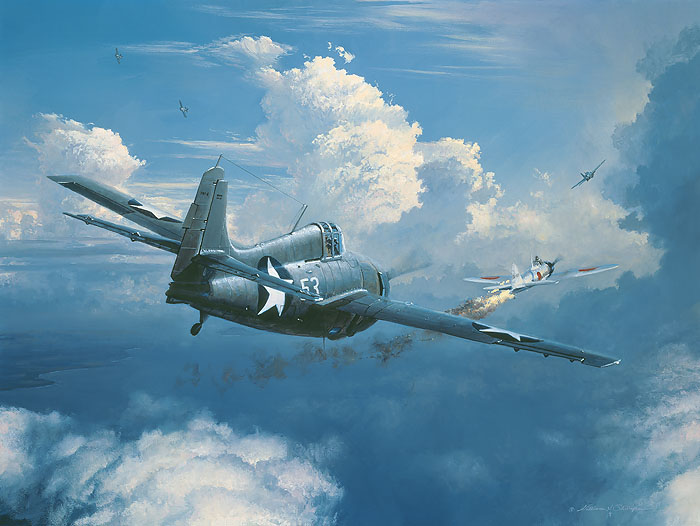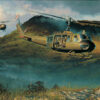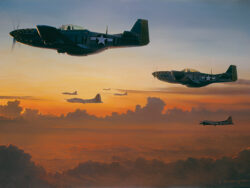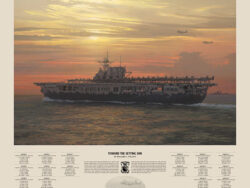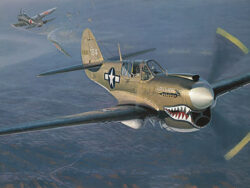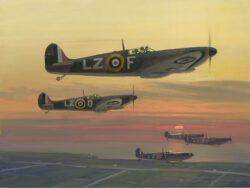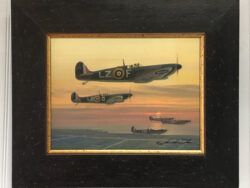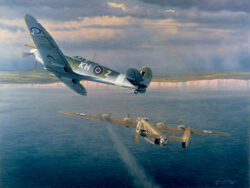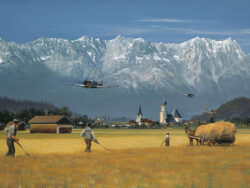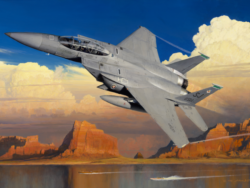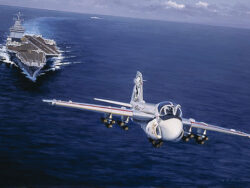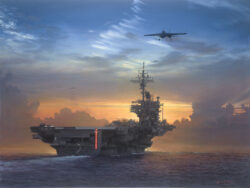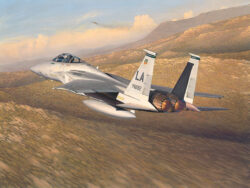When You See Zeros, Fight Em
$395.00
LIMITED EDITION CANVAS
Limited Edition of: 45
Image Size: 24″w x 18″h
1 in stock
A warhorse needn’t be pretty ― it earns its oats in combat. The design of Japan’s elegant Mitsubishi Zero may have enabled it to out-fly the Grumman F4F Wildcat on paper. Armor, self-sealing fuel tanks, a superior ceiling and dive rate led to the development of combat tactics that made the Wildcat a dangerous opponent. And when men like Marine Corps Captain Joseph J. Foss were behind the stick, it couldn’t be outfought.
William S. Phillips When You See Zeros, Fight ’Em depicts October 23, 1943 in the skies over Guadalcanal, when 28 Japanese Zeros and 16 Betty bombers swarmed over the island. Foss and his men were in the skies to counter attack. At one point, a Wildcat in pursuit of a Zero became potential prey himself, pursued by another Zero. Seeing this, Foss brought his plane in behind to within a few feet of the Zero and opened fire. The Zero burst into flames and the pilot bailed out, clearing Foss’ plane by inches.
Foss had a great appreciation for the Wildcat’s sturdy airframe. After his first victory, he got separated from his wingman―often a fatal mistake. Zeros “bounced” him and he dove for the deck, recalling that the Japanese planes were said to shed their wings in a dive. Wrong. “The wings didn’t come off,” reported Joe, “and they really salted me.” Well-riddled, he crash-landed his Wildcat and remembered the lesson.
Foss would claim that wasn’t a good shot. “I just got up there and stuck those guns up his tail. When you see Zeros,” he told his squadron, “fight ‘em.” He was awarded the Congressional Medal of Honor for his “indomitable fighting spirit” in the skies over Guadalcanal in the fall of 1942. In just 63 days he shot down 26 planes.
Related products
William S. Phillips
William S. Phillips
William S. Phillips
William S. Phillips
William S. Phillips
William S. Phillips
William S. Phillips
William S. Phillips
Artists
William S. Phillips
William S. Phillips
William S. Phillips

